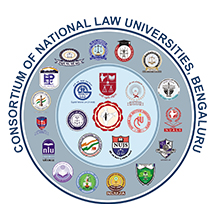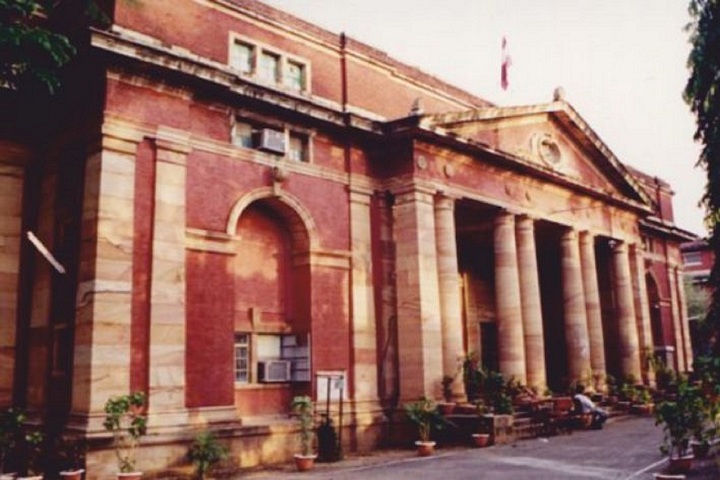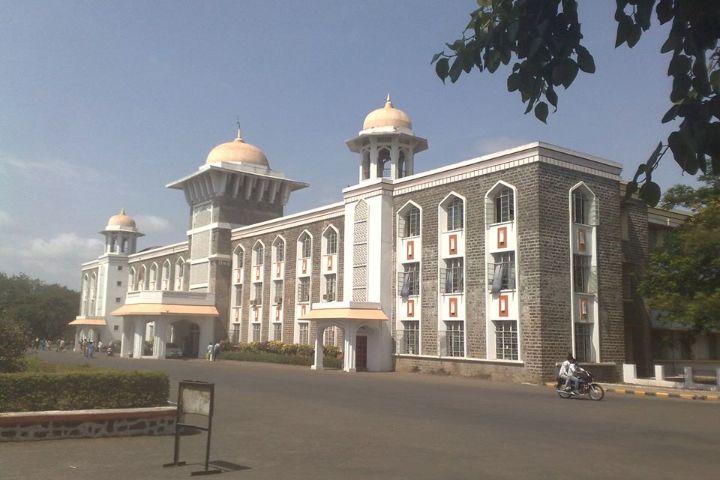
Criminal Law Course Details - Fees, Subjects, Syllabus, Duration, Eligibility, Career Scope
Degrees offered: BS, B.A., L.L.M, M.S, B.A.(Hons)
What is Criminal Law
Criminal Law is a specialised discipline that provides an in-depth knowledge of legal principles governing criminal conduct and the justice system. It covers the fundamentals of criminal law, various categories of crimes, components of offences, and the defences. It incorporates practical components such as case studies, moot court exercises, and internships.
In this branch of law, students investigate different crimes, such as violent crimes, cybercrime, property crimes, and white-collar crimes. They also learn about the social and legal outcomes of the same. In addition to learning about the processes involved in criminal investigations, trials, and sentencing, students may also take a course on topics including criminology and forensic law, and ethical dilemmas.
Students graduate from this course with a thorough understanding of criminal law and its applications, setting them up for jobs in law enforcement, legal practice, policy analysis, or related fields of higher education. These profiles are offered in various law firms for an average package of Rs. 4.9 LPA. Around 124 colleges in India offer courses in Criminal Law in various undergraduate and postgraduate level degrees.
Criminal Law- Important Dates and Events
- 7th December 2024- CLAT result out
- 9th December 2024-CLAT 2025 Counselling Registrations Started
Criminal Law Course Details
| Particulars | Values |
|---|---|
Branch Name | Criminal Law |
Criminal Law Degrees | LLB, Diploma, and LLM |
Criminal Law Course Duration | UG: 3 years PG: 2 years |
Criminal Law Eligibilty Criteria | UG: Completion of 10+2 in any stream PG: Graduation in law or related field with a minimum 50 per cent aggregate. |
Criminal Law Admission Process | Admission Examination and Merit Scores |
Criminal Law Entrance Exam | UG: CLAT, SET SLAT, AILET PG: LSAT, CLAT PG, CUET PG |
Criminal Law Course Fees | Rs. 12,000 - Rs. 10 Lakhs |
Criminal Law Job Profiles | Criminal lawyer, Criminologist, Government Lawyer, Public Prosecutor |
Criminal Law Average Salary | Rs. 4.9 LPA |
Criminal Law Recruiting Companies | JP Morgan Chase Bank, Sairam Law Associates, Lawtendo, International Justice Mission, Space Consultants, Disha Law Firm, Universal Hunt, KPS Legal, RJ Cube Staffing Solutions PVT. Ltd., Adani Enterprises Ltd. |
Specialisation or Similar Ones
Criminal law offers a variety of specialisations and related fields that cater to diverse interests and career paths. Candidates can choose the specialisations based on their interests and future goals. Some of the popular specialisations offered in the field of Criminal Law are mentioned in the table below.
Juvenile Justice | |
White-Collar Crime | Forensic Science and Criminal Investigation |
Victim Advocacy | Human Rights and Criminal Law |
What is Criminal Law Course?
Criminal Law is one of the most popular branches in the legal discipline. It is one of the most popular and in-demand specialisations generally opted by the candidates. It covers various criminal activities such as theft, murder, and sexual abuse. After graduation, candidates can opt for job roles such as Criminal Lawyer, Criminologist, Government Lawyer, and Public Prosecutor.
Criminal Law Courses- Candidates can study criminal law at various levels such as certificate, undergraduate and postgraduate levels. Some of the popular courses are mentioned below.
Criminal Law Subjects- The subjects included in the course curriculum of Criminal Law are Principles of Criminal Law, Criminology and Criminal Justice, Corporate and White Collar Crimes, and Legal Research Methodology.
Top Law NIRF Ranking 2024
Students are advised to choose the law institute based on the NIRF ranking. It stands for National Institutional Ranking Framework 2024. NIRF ranks the institutes based on the educational facilities, placement facilities, and infrastructural facilities. In the table below, we have mentioned the top law colleges based on NIRF Ranking 2024.
| Top Law Colleges | NIRF Rankings (2024) |
|---|---|
1 | |
2 | |
3 | |
4 | |
5 | |
6 | |
7 | |
8 | |
9 | |
10 |
Top Private Criminal Law Colleges in India with Fees
Many private universities in India offer Criminal Law courses. The salary charged may be on he higher side as compared to government counterparts. Private institutes are known for their quality education, good placement facilities, and good infrastructural facilities. In the table below, we have discussed the private criminal law colleges along with the respective fees.
| Colleges | Fee Details |
|---|---|
Rs. 1.98 Lakhs | |
Rs. 10.50 Lakhs | |
- | |
Rs. 1.30 Lakhs | |
Rs. 1.55 Lakhs | |
Rs. 1.25 Lakhs | |
Rs. 1.56 Lakhs | |
- | |
Rs. 80,000 | |
- |
Top Government Criminal Law Colleges in India with Fees
Many government colleges also offer UG and PG-level degrees in Criminal Law. However, attending a government institute is comparatively cheaper as compared to a private institute. These colleges are well known for their high academic standards and affordable fees throughout India.
| Colleges | Fee Details |
|---|---|
Rs. 64,000 | |
Rs. 1.46 Lakhs | |
Rs. 25,000 | |
Rs. 17,300 | |
Rs. 12,600 | |
- |
Eligibility Criteria (UG & PG) of Criminal Law
Those interested in studying a course in Criminal Law need to fulfil the eligibility details required by the colleges. For undergraduate degrees, candidates are required to complete their 10+2 education. Similarly, a PG degree requires a Bachelor's degree in similar or related disciplines. Listed below are the eligibility details for Criminal Law courses at the undergraduate and postgraduate levels.
Eligibility Criteria for UG Courses
Candidates interested in pursuing Criminal Law courses at an undergraduate level must satisfy certain eligibility criteria. These admission requirements may vary from one institute to another. However, some of the most common eligibility conditions to get admission into the course are listed below:
| Eligibility Parameters | Details |
|---|---|
| Educational Qualification | 10+2 in any stream from a recognised board in India. |
| Minimum aggregate score | 50 per cent (5-10 per cent relaxation for candidates belonging to the reserved categories) |
| Entrance examinations | CLAT, SET SLAT, and AILET |
Top Entrance Exams for UG Courses
Aspiring candidates need to appear for certain entrance examinations before applying for admission. Some colleges may conduct university-specific examinations for Criminal Law courses. In the table below, we have provided the details of a popular examination for UG degrees.
| Exam Name | Exam Level | Conducting Body | Exam Schedule |
|---|---|---|---|
National | National Law University | ||
University | Symbiosis Law School (SLS), Pune | - | |
University | NLU Delhi |
Eligibility Criteria for PG Courses
Similar to undergraduate courses, for PG-level degrees, candidates have to meet some basic requirements. Every institute may have its own set of specifications. However, in the table below, we have mentioned the eligibility details of Criminal Law courses at PG levels.
| Eligibility Parameters | Details |
|---|---|
| Educational Qualification | Bachelor's degree from a recognised institute in India |
| Minimum aggregate score | 50 per cent (5-10 per cent relaxation for reserved category applicants) |
| Entrance examinations | LSAT, CLAT PG, and CUET PG are popular exams at PG levels. |
Top Entrance Exams for PG Courses
Candidates who aspire to pursue their postgraduate degree must appear for certain entrance examinations. Those who have successfully cleared these entrance examinations can get admission depending on their cutoff marks. The popular examinations for Criminal Law are listed below.
| Exam Name | Exam Level | Conducting Body | Exam Schedule |
|---|---|---|---|
National | Law School Admission Council | ||
National | Consortium of National Law Universities (NLU’s) | - | |
National | National Testing Agency |
College Predictors VIEW ALL
Scope of Criminal Law in India and Abroad
Criminal Law course has a wide application in India. Since it is a cornerstone of the nation's legal system for upholding justice and public order. The field of criminal law is a dynamic and ever-evolving discipline, with a growing demand for expertise in cybercrime, financial fraud, and human rights. The field of criminal law also offers a variety of professional routes and opportunities to significantly impact justice systems both domestically and globally.
Global legal norms and practices have an impact on the wide range of options that criminal law presents globally. Attorneys can focus on topics like international criminal law, collaborating with institutions like the International Criminal Court to tackle transnational crimes. Criminal investigations have also been transformed by advances in forensic science and technology, necessitating the necessity for professionals who can successfully manage these changes.
Course Fees Criminal Law
| Minimum Fees | Maximum Fees | |||
|---|---|---|---|---|
| Private | Government | Private | Government | |
| UG | ||||
| PG | ||||
| DOCTORAL | ||||
| DIPLOMA | ||||
Course Subjects
In this section, we will discuss the syllabus of undergraduate and postgraduate courses in Criminal Law specialisation. The syllabus slightly varies from one institution to another, some of the courses offered are Research Methods and Legal Writing, Criminal Liability and Defences, Crimes Against Public Morality, and International Criminal Law. Mentioned below is the syllabus of undergraduate and postgraduate courses in the field of Criminal Law.
Criminal Law Syllabus for UG Courses
Criminal Law as a specialisation is not offered at the undergraduate level, though some subjects are related to Criminal Law in the undergraduate degree. The curriculum of these degrees provides the students with ample theoretical and practical learning. In the table below we have mentioned some of the topics related to Criminal Law covered in an undergraduate degree in law.
Introduction to Criminal Law | Vicarious Liability and Corporate Crimes |
Historical Development of Criminal Law | Criminal Investigation and Evidence |
Sources of Criminal Law | Defences in Criminal Law |
Elements of a Crime | Crimes Against Public Order |
Classification of Crimes | Unlawful Assembly |
Criminal Liability and Defences | Sedition |
Offences against Property | Crimes Against Public Morality |
Theft | Terrorism |
Robbery | Juvenile Justice |
Burglary | International Criminal Law |
Fraud | Victims' Rights and Restorative Justice |
White-Collar Crimes | Emerging Issues in Criminal Law |
Cybercrimes | Technological advancements and criminal law |
Criminal Law Reform | Police Powers and Accountability |
Contemporary Debates in Criminal Law | Prosecution and Defense |
Case Studies and Analysis | Judiciary and Courts |
Robbery | Juvenile Justice |
Burglary | International Criminal Law |
Fraud | Victims' Rights and Restorative Justice |
White-Collar Crimes | Emerging Issues in Criminal Law |
Cybercrimes | Technological advancements and criminal law |
Criminal Law Reform | Police Powers and Accountability |
Contemporary Debates in Criminal Law | Prosecution and Defense |
Case Studies and Analysis | Judiciary and Courts |
Criminal Law Syllabus for PG Courses
The academic curriculum of PG courses in Criminal Law equips students with the necessary knowledge and skills required to excel in the field. Some of the subjects offered in the postgraduate Criminal Law courses are Introduction to Criminal Law, Scopes of Criminal Law, and Criminal Law reform. In the table below we have mentioned the syllabus of Gujarat University, Ahmedabad.
Semester- I | |
Legal Theories | Indian Constitutional Law: The New Challenges |
Public International Law | Penology |
Privileged Class Deviance | Drug Addiction |
Semester- II | |
Judicial Process | Law and Social Transformation in India |
Legal Research Methodology | Principles of Criminal Law |
Comparative Criminal Procedure | Offences Related to Juveniles |
Semester III | |
Criminology | Laws of Evidence |
Forensic Science and Criminal Investigation | Cyber Crimes |
Human Rights in the Criminal Justice System | Police and Criminal Justice System |
Semester- IV | |
Doctrinal Research | Clinical Research Report |
Dissertation and Submission of Thesis | |
Careers in Criminal Law
A career in criminal law can be extremely lucrative and beneficial. Those having a strong sense of justice and an interest in public service will find the discipline very appealing. It is also a good option for those interested in trial practice and litigation. Criminal lawyers typically act as prosecutors or defence lawyers.
Defence lawyers can work for a public defence organisation, as sole practitioners, or as part of a law company. Prosecutors work for the government at either the local, city, or county prosecutor's office, the state attorney general's office's criminal division, or the United States Attorney's Office. Some of the career options are:
| Job Profiles | Job Description |
|---|---|
A criminal lawyer is a lawyer who specialises in criminal law and punishment and represents those who have been accused of committing a crime. Bail bond hearings, plea bargaining, trials, dismissal hearings, appeals, and post-conviction procedures all fall under his or her purview. | |
Criminologist | Criminologists gather and analyst data from crime scenes in order to discover why and how a crime occured. They may collaborate with sociologists, psychologists, scientists and law enforcement personnel to gain a better knowledge of a given crime scene and to avoid future criminal activity. |
A Government lawyer is a professional lawyer responsible for writing legal documents and handling all criminal and civil cases. These lawyers can work in tax departments, environmental, and justice legislation. A government lawyer works under a senior government lawyer in the drafting of proposed bills and debates. | |
Public Prosecutor | A Public Prosecutor is the person in charge of criminal cases in the court system. A Public Prosecutor is a judicial officer appointed by the state. The term "Public" implies that he is a state representative chosen in the interest of the common person in India's established criminal justice system. He is a state agent appointed in criminal procedures. |
Upcoming trends
Criminal Law is an ever evolving field and is constantly being influenced by new advancements and changes in the demands. The field is changing in response to societal changes, technological advancements, and global challenges. Mentioned below are some of the recent advancements in the field of Criminal Law:
- Cybercrime and Digital Forensics
- Restorative Justice
- International Collaboration
- Legal Reforms and Decarceration
- Focus on Human Rights
- Protecting the privacy of civil rights
Job Profiles and Top Recruiters
Criminal law involves a wide range of job profiles, including those of judges, prosecutors, and defence lawyers who enforce and interpret the law within the legal system. In order to handle complicated and dynamic criminal concerns, legal practitioners can additionally specialise in fields like cybercrime, forensic analysis, and international law.
Top Recruiters:
- JP Morgan Chase Bank
- Sairam Law Associates
- Lawtendo
- International Justice Mission
- Space Consultants
- Disha Law Firm
- Universal Hunt
- KPS Legal
- RJ Cube Staffing Solutions PVT. Ltd.
- Adani Enterprises Ltd.
Average Salary
Candidates in the field of Criminal Law are offered lucrative benefits and high salary packages. The salary for criminal lawyers varies a lot depending on the experience, and the number of wins in cases. In the table below we have mentioned the average salary for some of the top career options in the field of Criminal Law.
| Job Profiles | Average Salary |
|---|---|
Criminal lawyer | Rs. 3 LPA |
Criminologist | Rs. 3.8 LPA |
Government Lawyer | Rs. 4.8 LPA |
Public Prosecutor | Rs. 6.5 LPA |
Source: Ambition Box
The salary figures mentioned anywhere in these articles are just for reference purposes. Please treat them as such. Actual salaries may vary depending on respective candidates, employer, job location, and numerous other factors.
Required Skillset for Criminal Law
A career in criminal law demands a unique and comprehensive skill set to effectively navigate complex legal issues and advocate for clients. Students who wish to enter the field must possess a combination of various skills and qualities that will help them to excel in their careers. Mentioned below are some of the important attributes and skills required for the Criminal Law field.
- Analytical Skills
- Critical thinking
- Strong Communication
- Research Proficiency
- Ethical Judgement
- Negotiation Skills
- Resilience and Stress Management
Course Curriculum for Criminal Law
The course of criminal law comprises various subjects which teaches the students different laws involved in the jurisdiction. They also learn English for smooth court trials. They need to maintain the code of conduct in courtrooms and keep their client’s trust in getting them justice. They will also learn the different policies and the politics that go on in the courtroom.
The students will also learn how to legally deal with a case, what facts and reasonings they have to make clear before appearing in court and how to prove that his/her client is innocent is all taught to them. They also learn about the different penalties and punishments given during a particular crime and how they can reduce it by bargain and pleading.
Popular Criminal Law Entrance Exams in India
Frequently Asked Questions (FAQs)
Question: How is Criminal Law different from Civil Law?
Answer :
Civil Law deals only with the matters pertaining to domestic and commercial disputes that do not cause any bodily harm to anyone. Whereas, Criminal Law primarily deals with acts that harm society.
Question: Who are the top recruiters of Criminal Law courses?
Answer :
The top recruiters of Criminal Law course includes JP Morgan Chase Bank, Lawtendo, KPS Legal, RJ Cube Staffing Solutions Pvt Ltd, KPS Legal, Advani Enterprises Ltd.
Question: What is the average salary of a Criminal Law graduate?
Answer :
The average salary of a Criminal Law graduate depends on various factors such as the Location of the company, experience and qualification of the graduate. The average salary of a Criminal Lawyer is Rs 4.9 LPA.
Question: What are the required skills for a Criminal Law degree?
Answer :
Candidates must possess certain skills in order to do well in their academics and profession. These skills are Writing and Speaking Skills, Research and Investigative Skills, Legal Knowledge, Interpersonal Skills, Creative and Time Management Skills.
Question: What are the top entrance exams for UG and PG courses in Criminal Law?
Answer :
The top entrance exams for Criminal Law are CLAT UG, LSAT, CLAT PG, AILET. These entrance exams are very crucial for determining the candidates admission to the course.




.jpg)

.jpg)















